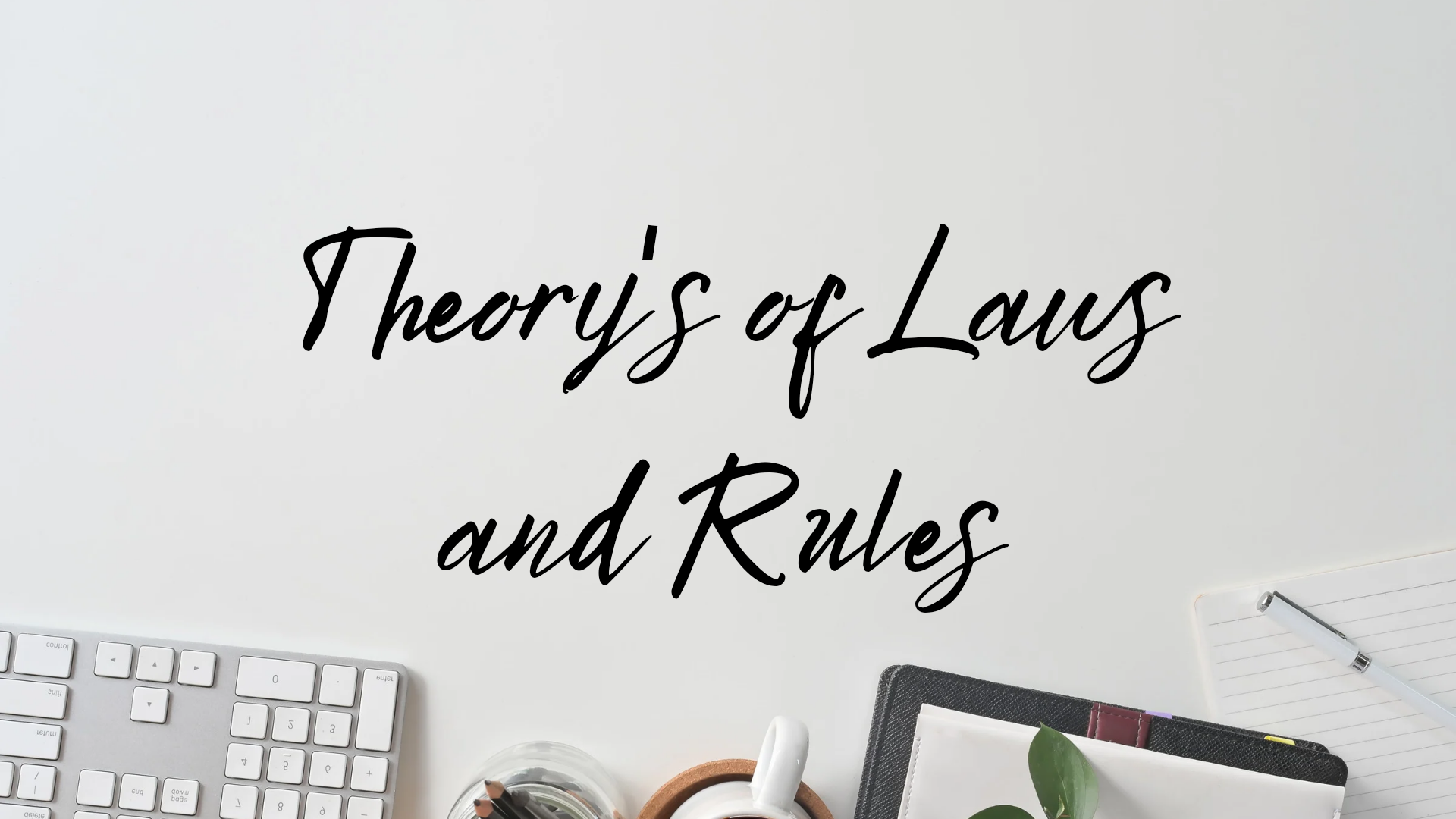Copyright @ 2023 www.digimitr.com. All rights reserved.

Theories of Laws and Rules
Laws and rules are essential components of any society. They provide a framework for people to live and work together, ensuring that everyone is treated fairly and justly. In India, the legal system is based on a combination of civil law, common law, and religious personal laws. This article will discuss the different aspects of laws and rules in India, as well as various popular theories related to the subject, including the difference between laws and rules.
Different Aspects of Laws and Rules in India:
Sources of Law:
In India, laws and rules are derived from various sources, such as the Constitution, statutes, case law, and customary law. The Constitution is the supreme law of the land, and all other laws and rules must conform to its provisions. Statutes are laws passed by the legislature, while case law is the body of legal precedent established by court decisions. Customary law is derived from long-established practices and traditions.
Legal System:
The legal system in India is divided into two main branches: civil law and criminal law. Civil law deals with disputes between individuals or organizations, such as property disputes or contract disputes. Criminal law deals with offenses against society, such as theft, murder, or fraud. The Indian legal system is also based on the principle of the rule of law, which means that everyone is equal before the law, and no one is above the law.
Courts and Tribunals:
India has a hierarchical system of courts, with the Supreme Court at the top, followed by High Courts, District Courts, and subordinate courts. There are also various tribunals established to deal with specialized areas of law, such as taxation, labor disputes, and environmental issues.
Legal Profession:
The legal profession in India is regulated by the Bar Council of India, which sets standards for legal education, ethics, and professional conduct. Lawyers in India are required to pass a bar exam and obtain a license to practice law.
Difference between Laws and Rules:
Laws and rules are often used interchangeably, but there is a subtle difference between the two. Laws are formal rules that are created by a legislative body, such as the Indian Parliament or state legislature. Laws are enforced by the government and can carry serious consequences if violated. Rules, on the other hand, are informal guidelines or standards that are created by organizations or institutions to govern their own activities. Rules are typically enforced by the organization or institution that created them and may not carry the force of law.
Popular Theories Related to Laws and Rules:
Natural Law Theory:
The natural law theory is based on the idea that there are certain inherent moral principles that are applicable to all human beings, regardless of time, place, or culture. According to this theory, laws and rules should reflect these moral principles, and any law that violates these principles is unjust and should not be followed.
Legal Positivism:
Legal positivism is the theory that laws and rules are created by human beings and are therefore subject to change. According to this theory, the validity of a law is based on its source, rather than its moral content. For example, a law passed by a democratically elected legislature is considered valid, regardless of whether it conforms to moral principles.
Legal Realism:
Legal realism is the theory that laws and rules are not objective or neutral, but are influenced by social, economic, and political factors. According to this theory, judges and lawmakers are influenced by their own biases and interests when creating or interpreting laws. Therefore, laws and rules should be evaluated in the context of their social, economic, and political implications.
Critical Legal Studies:
Critical legal studies is a theory that challenges the idea of law as a neutral and objective system of rules. According to this theory, the law is a tool of power and is used to maintain the status quo and reinforce existing social hierarchies. Therefore, the law should be analyzed and critiqued from a social justice perspective.
Conclusion:
Laws and rules are an essential part of any society, and India has a rich and complex legal system that reflects its diverse cultural, social, and political history. Understanding the different aspects of laws and rules in India, as well as the popular theories related to the subject, can provide valuable insights into the functioning of the legal system and its impact on society




